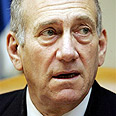Asked, "To which Yom Kippur prayer do you relate to the most?," some 30% of the interviewees chose Ne'ila, the concluding prayer of the day; 27% relate most to Kol Nidrei, which opens the day's prayers; 9% chose Yizkor, where the worshipers commemorate their late relatives, the IDF fallen, terror victims, and those who perished in Holocaust; and 7% chose the famous U'Netane Tokef passage as their favorite. The remaining respondents refused to answer.
Segmented by religious definition, the answers showed that the religious and stricly Orthodox relate most to Ne'ila (61% and 48% respectively), while the observant and secular respondents chose Kol Nidrei as their favorite Yom Kippur prayer (with 40% and 25%). It should be noted that some 42% of the secular respondents failed to answer this question.
A further analysis of the data revealed that 31% of the women favor the closing prayer and 26% of them feel closer to the prayer that releases them of last year's vows, while the men provided the opposite result, with a small edge for Kol Nidrei (30% and 29%). Another clear distinction was found when the answers were broken down by respondents' age, showing that while those aged 18 to 24 chose Kol Nidrei, older worshipers, aged 25 to 44, feel closer to the Ne'ila prayer.
What characterizes the sacred day?
In the second part of the poll, the respondents were asked to opine, "Which is the most Jewish-Israeli characteristic of Yom Kippur?" The fast was selected by 36% of them, 31% chose the prayers, 20% mentioned the silence on the streets, and 7% pointed at the resounding memory of the Yom Kippur War.
Here too, a clear distinction was found between the religious and stricly Orthodox, who believe the prayers are the most important feature of the day (55% and 66% respectively), while observant and secular Jews said the fast is more prominent (42% and 38%). Divided by gender, 36% of the females chose the prayers and 34% the fast, while most male respondents voted for the fast (40%).
Young respondents, aged 18 to 44, believe that the fast is the most important feature of Yom Kippur, as did those aged 55 to 64. Interviewees aged 45 to 54 and 65 and up said prayers were the strongest characteristic.
Who should ask for Israel's forgiveness?
Third, the interviewees were asked choose one person from a provided list who they believe should stand up in synagogue and ask for the nation's forgiveness.Leading with 37% is Prime Minister Ehud Olmert, followed by Rabbi Ovadia Yosef with 24% due to his remark about the IDF fallen, and 16% pointed a finger at Boaz Yona, director-general of the Hephzibah construction company, who fled Israel leaving many of his clients homeless. Similar results were obtained even when respondents were segmented by religious self-definition. The sole difference here was that, remembering the distress of the yeshiva students in Modi'in Ilit, the strictly Orthodox chose the Hephzibah CEO second, before Rabbi Ovadia.
Commenting on the survey results, Gesher educational enterprises CEO Shoshi Becker said: "On the one hand, we may look at the full half-glass and see that some 66% of the Israeli public relates to the prayers and traditional elements of Yom Kippur.
"On the other hand, it is troubling that a young generation is growing here that is not familiar with the prayers and does not grasp the power and meaning of our liturgy and tradition. The entire State of Israel stands still on Yom Kippur, but that unifying framework must be filled with Jewish-Israeli contents and meaning."
Becker said she hoped that in the coming years we will see changes in this respect, that ties with Jewish heritage and tradition will grow stronger, and that Jewish holidays be filled with real contents.
The survey was conducted by the Mutagim Institute over 500 interviewees who constitute a representative sample of the Hebrew-speaking, adult Jewish population of Israel.
















